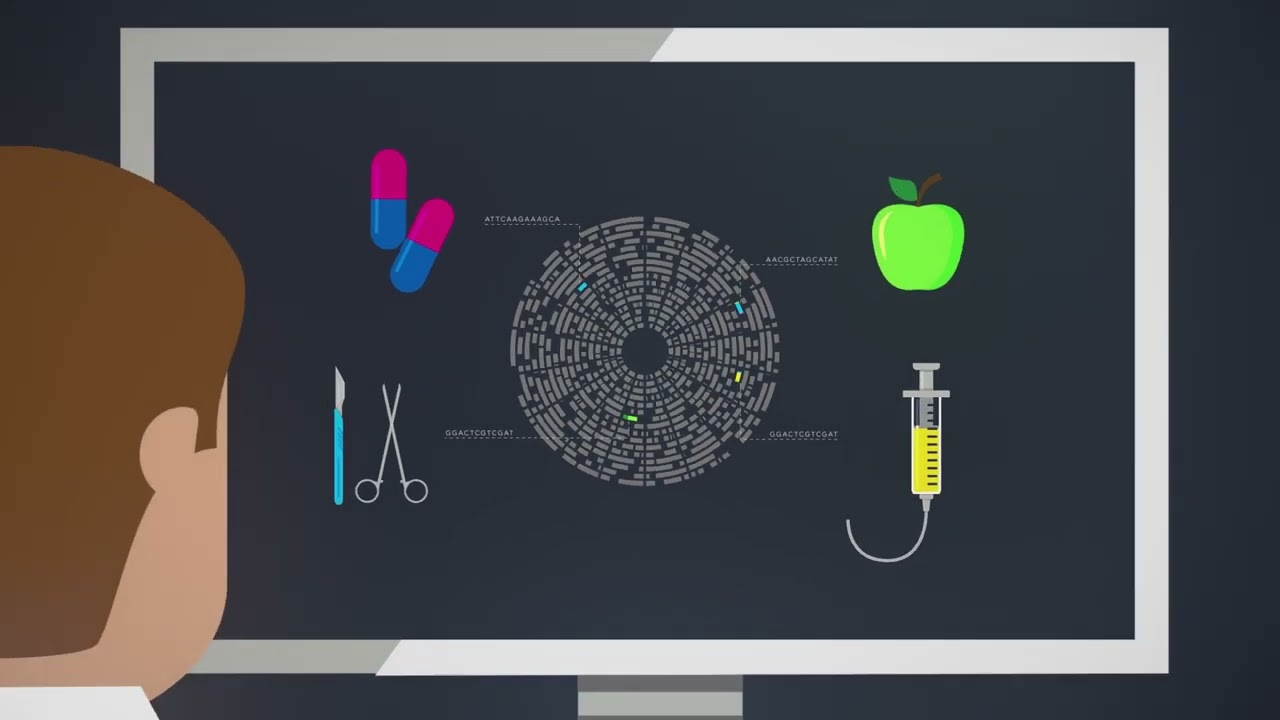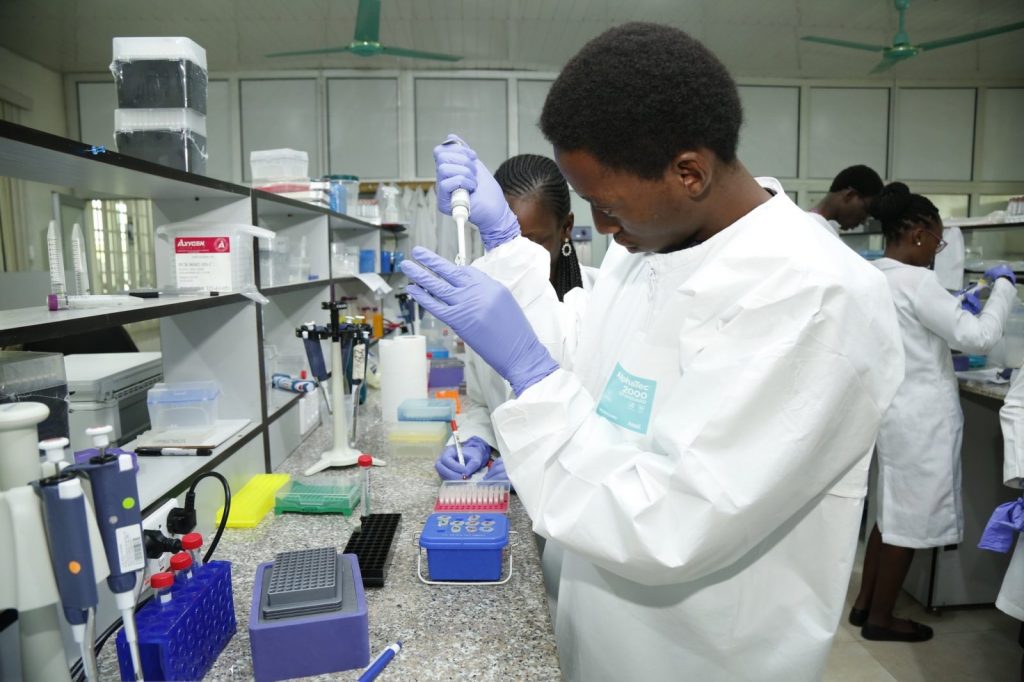Genomic Medicine - How It Affects Acute Cardiovascular Disease In Diabetes
Genomic medicine is now important to modern medicine for health promotion and disease prevention. Nutritional genomics allows researchers to determine nutritional interventions that improve gene expression and community health.
Author:Suleman ShahReviewer:Han JuMay 31, 202316.4K Shares468.6K Views

Nutritional genomics allows researchers to determine nutritional interventions that improve gene expression and community health.
The future of diabetesscienceand medicine depends on nutritional genomics, which involves anti-aging genes that prevent insulin resistance, circadian desynchrony, hyperlipidemia, acute cardiovascular disease, NAFLD, and neurodegenerative diseases.
The anti-aging gene Sirtuin 1 (Sirt 1) is now important for preventing chronic disease due to its critical role in the immune system, which involves toxic immune reactions linked to the acceleration of various organ diseases, including diabetes.
What Is Genomic Medicine?
The study of our genes (DNA) and the role they play in our overall health is what is known as genomic medicine. Genomics is the study of how the biological information of a person can be used to improve clinical care and the patient's overall health (for example, by providing a more accurate diagnosis and providing individualized treatment).
Genetics is the study of individual genes or groups of "letters" along the DNA strand, whereas genomics is the study of an individual's complete genetic composition. It is associated with conditions that have a wider range of triggers, such as diabetes, heart disease, cancer, and asthma, and it is about how they relate and react with each other.

What is Genomic Medicine
How Is Genomics Used In Medicine?
Diagnosis:For instance, in situations in which the root cause of a variety of symptoms cannot be isolated using any other method.
Pregnancy tests:Either for screening purposes (just in case there is something wrong with the baby) or in cases where there is already a historyin the family. It enables the parents to make choices and plans for the future that are informed, which is helpful for the parents.
A family history of genetic disorders can tell prospective parents if they are carriers and can pass it on to their children. It can tell if someone will develop the inherited condition later in life, even if they have no symptoms.
Risk evaluation:A person's propensity to develop certain diseases, such as cardiovascular disease, stroke, and cancer, can be deduced from their genetic make-up. It's possible that they have high cholesterol or that they have issues with their veins. Both of those things are not good. Because they are in possession of this information, they are in a position to mitigate the risk through the use of medications, medical intervention, or by making beneficial changes to their lifestyle.
Ways Genomic Medicine Is Making A Difference
Gaining a deeper comprehension of the connections between biology and illness is beneficial on a number of different fronts.
Personal:Patients receive medications, treatments, and a health care plan that are individualized to meet the patients' specific requirements and concerns. Consider the treatment of colorectal cancer as an illustration in this regard. When treated with a non-steroidal anti-inflammatory medication like aspirin, certain individuals who have a particular gene mutation have better survival rates than other individuals who do not have this mutation.
Doctors:Having access to genomic information can help improve diagnostic accuracy, treatment management, and the ability to recognize symptoms across a larger patient population. There have been a few instances in which a diagnosis of cerebral palsy has been reevaluated in light of genetic testing, which has led to the discovery of a new diagnosis and, as a consequence, a new treatment strategy that is more effective.
National level:Developing strategies to care for rising trends and particular communities, as well as programs such as newborn screening in the United States, which examines newborns for between 29 and 50 severe but treatable conditions.
Globally:Initiatives such as the Online Mendelian Inheritance in Man4, which is a database of all known human genetic conditions that is freely accessible online. When taken together, these factors increase the likelihood that parents of children affected by rare syndromes will receive the answers they seek and the assistance they require.

What is Genomic Medicine?
The Effect Of Genomic Medicine In Acute Cardiovascular Disease
Sirt 1 defects in diabetes link the gene to multi-organ gene regulatory influences with molecular targets relevant to immune dysfunction, organ disease, and metabolic syndrome. Sirt 1 is a NAD+-dependent class III histone deacetylase (HDAC) that regulates the immune system to prevent mitophagy. Sirt 1 targets transcription factors such as p53 to adapt gene expression to the immune system, and deacetylates nuclear receptors associated with insulin resistance. Micro RNA (mi-34a, mi-132, and mi-122) can alter Sirt 1 expression, which affects insulin resistance, cardiovascular disease, and metabolic disease.
Various regions of the world are concerned about the causes of cardiovascular disease. Nutrition and genomic medicine in diabetes are crucial for insulin therapy, cardiovascular disease, and toxic immune reactions. Sirt 1 repression, uncontrolled toxic immune reactions, and mitophagy should be included in immune-mediated inflammatory cardiovascular diseases. This is relevant to the progression of cardiovascular disease in diabetes. Sirt 1 repression and mitophagy are linked to climate and pollution changes that trigger myocardial infarction or arrhythmias.
Sirt 1 repression is related to defective HSP 70 metabolism, and Sirt 1 is now called the heat shock gene. HSP70 is important for mitochondrial apoptosis and autoimmune disease, and elevated HSPs in men are linked to cardiovascular disease. Heat therapy in diabetics should be carefully controlled because it may lead to complete inactivation of nutritional Sirt 1 genomics, which affects immune reactions, acute cardiovascular disease, and NAFLD.
Activating Sirt 1 nutritionally is essential for treating insulin resistance and preventing diabetes-related organ disease. Nutrition and the immune system are important to nutritional genomics, with mitophagy in neurons crucial to maintaining neuron lifespan in cardiovascular, metabolic, and neurodegenerative diseases. Sirt 1 inhibitors like bacterial lipopolysaccharides are relevant to diabetes disease progression because Sirt 1 repression is linked to autoimmunity, NAFLD, and insulin resistance.
Nutritional genomics considers caffeine a trigger for acute cardiovascular disease. Caffeine is a Sirt 1 modulator that induces Type 3 diabetes through mitophagy and NAFLD. Dietary fat (gm/day) intake determines caffeine metabolism, which is relevant to the use of Sirt 1 activators in genomic and nutritional medicine for diabetic cardiovascular disease prevention.
People Also Ask
What Role Does Genetics Play In Cardiovascular Disease?
Genes are responsible for controlling every aspect of the cardiovascular system, including the elasticity of the blood vessels and the manner in which heart cells communicate with one another. The risk of developing heart disease can be influenced by a change (mutation) that occurs in just one gene.
What Is Cardiovascular Gene Therapy?
Gene therapy is a potential treatment option for acquired and inherited cardiovascular diseases that remain with unmet clinical needs. Although several conventional small-molecule treatments are available for common cardiovascular problems, gene therapy is also a potential treatment option for these diseases.
What Is Clinical Genomic Medicine?
The use of genomic information about an individual as part of that person's clinical care (for example, to make decisions about diagnostic or therapeutic treatment), as well as the health outcomes and policy implications of that clinical use, are the primary focuses of the emerging field of medicine known as genomic medicine.
What Is Precision Cardiovascular Medicine?
Precision medicine is an integrative approach to the prevention and treatment of cardiovascular disease that takes into consideration an individual's genetics, lifestyle, and exposures as determinants of their cardiovascular healthand disease phenotypes. This approach is also known as personalized medicine.
Conclusion
The study of nutritional genomics and the regulation of Sirt 1 have recently emerged as significant components in the management of diabetes and the development of a variety of organ diseases. The inactivation of Sirt 1 caused by heat or cold stress disrupts the metabolism of HSPs, which is connected to defective immunometabolism and mitophagy. The fields of science and medicine, particularly in relation to genomic medicine, have a duty to take into account the expression of the Sirt1 gene and how it relates to conditions such as diabetes and accelerated immune reactions that can lead to acute cardiovascular disease. Caffeine, high body temperature, and environmental pollution are some of the risk factors that need to be considered as potential causes of acute cardiovascular disease, which is linked to the progression of NAFLD and diabetes.

Suleman Shah
Author
Suleman Shah is a researcher and freelance writer. As a researcher, he has worked with MNS University of Agriculture, Multan (Pakistan) and Texas A & M University (USA). He regularly writes science articles and blogs for science news website immersse.com and open access publishers OA Publishing London and Scientific Times. He loves to keep himself updated on scientific developments and convert these developments into everyday language to update the readers about the developments in the scientific era. His primary research focus is Plant sciences, and he contributed to this field by publishing his research in scientific journals and presenting his work at many Conferences.
Shah graduated from the University of Agriculture Faisalabad (Pakistan) and started his professional carrier with Jaffer Agro Services and later with the Agriculture Department of the Government of Pakistan. His research interest compelled and attracted him to proceed with his carrier in Plant sciences research. So, he started his Ph.D. in Soil Science at MNS University of Agriculture Multan (Pakistan). Later, he started working as a visiting scholar with Texas A&M University (USA).
Shah’s experience with big Open Excess publishers like Springers, Frontiers, MDPI, etc., testified to his belief in Open Access as a barrier-removing mechanism between researchers and the readers of their research. Shah believes that Open Access is revolutionizing the publication process and benefitting research in all fields.

Han Ju
Reviewer
Hello! I'm Han Ju, the heart behind World Wide Journals. My life is a unique tapestry woven from the threads of news, spirituality, and science, enriched by melodies from my guitar. Raised amidst tales of the ancient and the arcane, I developed a keen eye for the stories that truly matter. Through my work, I seek to bridge the seen with the unseen, marrying the rigor of science with the depth of spirituality.
Each article at World Wide Journals is a piece of this ongoing quest, blending analysis with personal reflection. Whether exploring quantum frontiers or strumming chords under the stars, my aim is to inspire and provoke thought, inviting you into a world where every discovery is a note in the grand symphony of existence.
Welcome aboard this journey of insight and exploration, where curiosity leads and music guides.
Latest Articles
Popular Articles
